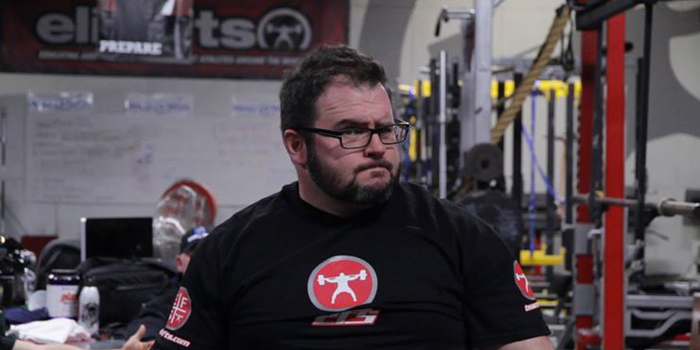
THE 5 Cs EVERY COACH NEEDS
One of my favorite things that I've learned from Jeremy Boone was the Five Es. I wrote about them previously and would make sure that I brought those Five Es every time I coached, talk, or presented. Here is a recap in case you are not familiar with Boone's 5 Es.:
From June 23, 2013
THE 5 Es FOR STRENGTH & CONDITIONING COACHES
1.) Be an Example to your athletes and fellow coaches in the weight-room. All the qualities you expect from your athletes in the weight room should be embodied by you as a coach.2.) Bring all your Experiences to every training session. It is not just experience that separate good from great strength coaches. It is specifically how they use those experiences to correct mistakes, improve as a coach, and to develop their own comprehensive coaching philosophy. Bring those experiences to the weight room every day.
3.) Create an Environment that permeates the right culture and attitude to enable success at all levels. Hold all teams, all athletes, accountable for their actions, their effort, and their performance. Create a training environment where athletes want to be and want to improve.
4.) Communicate Expectations to all athletes, coaches, parents, and administrators involved in the program. The method and terminology may be adjusted for the specific audience, but the philosophy, methodology, and principles need to be consistent to all parties interested.
5.) Bring Energy to every session. Athletes are going to feed off if you as a coach in the weight room. It is you as a coach they will buy into in the first place, not the program. Athletes generally do not care about the specifics of your programming or periodization scheme. They want to know you as a coach have their best interest in mind.
After talking to my friend Karl Geisler of PowerMax at Captial University yesterday about coaching, he had mentioned two things that every coach has to bring regardless of level of athlete or student they're coaching or teaching. You must bring conviction and compassion.
He went on to explain why those two attributes are so important and got me thinking. What are the attributes and qualities that every coach must bring to every session they are leading.
If the five Es are attributes that you must bring on a day-to-day basis, then the five C's are character traits that are imperative for long-term success of a coach.
These may sound similar to the 4 Cs of mental toughness. I steal a lot of information, but the final 3 Cs I thought of in the car on my way home. They are: Conviction, Compassion, Comprehension, Communication, and Courage.
I should probably add the word cliche'.
Comprehension
Comprehension means knowing the reasons why you do things. Having a solid educational background combined with evaluated experience are the two most valuable attributes that a coach can have. Comprehending the basic scientific foundations to the effects on training nutrition and recovery is essential.
Conviction
Conviction means teaching the things you truly believe in. Having strong beliefs and confidence in what you do while still being open-minded and willing to ask questions is a balance few coaches have. Believing in what you do and that is is what is best for your athletes is hard to replace in terms of positive attributes.
Communication
Communication means being able to deliver that message to a variety of athletes from every background. We have all had the very smart professor that has issues with presenting material in a way that most students can understand. It is important that coaches ask the question, "Am I explaining, demonstrating and reinforcing in a way that all of my athletes can understand?" What complicated things further is that every athlete learns differently an coaches need to exhaust all resources in terms of verbal, visual, and physical cues.
Compassion
Compassion means truly caring about your athletes and the situations can and can't control. A training session is such a small segment of an athlete's life and being empathetic to all of the stress that encompass a young person's life is why (or why not) you will have an impact on them for years to come. There is a difference between equity and equality. Treat athletes fairly and have enough compassion to hold them to a standard, then give them the confidence to achieve it.
Courage
Courage means knowing when to do the right thing and make the unpopular choice. This also means having the athlete's best interest in mind even when the sport coach or parent may not. It is not easy to stand up to the people writing your paychecks because you disagree with them. Having the courage to question what you don't understand or agree with is a trait that is lacking with a lot of coaches. This profession has made a lot of us (I was guilty) cowards and sometimes forces our values to waiver for the sake of staying employed. At the end of the day, we have to answer to the man in the mirror. Knowing that you did everything you could to keep your athletes safe and give the the best opportunity to success is why you should have started coaching in the first place.
SATURDAY
Snatch, Hang Snatch, Snatch Bal, OHS
50kg 5x1
SS Yoke Bar Squat
290x5
290x3
290x1
Buffalo Bar Bench Press w/ Pause
250x5
250x3
250x1
Ring Rows
1x20
MONDAY
Snatch
60kg for 5 singles
Conventional Deadlift
352 for 3 triples
Log Press
160x13
THURSDAY
at Showtime Strength & Performance
Hybrid Grip High Pull
225 for 3 triples
Dynamic Box Squat w/ bands
225 w/ Avg Bands for 3 doubles
supersetted with...
Box Jumps
for 3 doubles
Rackable Camberered Bar OH Press
205x8
205x6
*stole these from Juila Ladewski. Not an elitefts rackable cambered bar so it is very narrow and pretty shitty. Huge difference.








